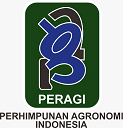University Students’ Decision-Making Model in Consuming Alternative-Protein Meatballs: A Gender Perspective
Abstract
Keywords
Full Text:
PDFReferences
Allen, M., Titsworth, S., & Hunt, S. (2014). Introduction to Quantitative Research. Quantitative Research in Communication, 1–16. https://doi.org/10.4135/9781452274881.n1
Amin, M., & Prihantini, C. I. (2023). Analisis faktor-faktor yang mempengaruhi pendapatan nelayan jaring insang dasar di Desa Lawulo, Kecamatan Samaturu, Kabupaten Kolaka. Nekton, 3(2), 68–80. https://doi.org/10.47767/nekton.v3i2.560
Andriyanty, R., & Wahab, D. (2019). Preferensi Konsumen Generasi Z terhadap Konsumsi Produk Dalam Negeri. ETHOS (Jurnal Penelitian Dan Pengabdian), 7(2), 280–296. https://doi.org/10.29313/ethos.v7i2.4694
Ashar, N. M., Nurmalina, R., & Muflikh, Y. N. (2024). Natural Silk Agribusiness Development Strategy in South Sulawesi Province , Indonesia. Agro Bali : Agricultural Journal, 7(3), 810–823.
Audina, G. A., & Pradana, M. (2024). The Influence of Green Products and Green Prices on Generation Z Purchasing Decisions. International Journal of Environmental Engineering and Development, 2, 168–176. https://doi.org/10.37394/232033.2024.2.14
Blanco-GutiérrezIrene, Varela-Ortega, & Consuelo Manners, R. (2020). Evaluating animal-based foods and plant-based alternatives using multi-criteria and SWOT analyses. International Journal of Environmental Research and Public Health, 17(21), 1–26. https://doi.org/10.3390/ijerph17217969
Bryant, C., & Barnett, J. (2018). Consumer acceptance of cultured meat: A systematic review. Meat Science, 143(November 2017), 8–17. https://doi.org/10.1016/j.meatsci.2018.04.008
Carvalho, A. S. M., Godinho, C. I. A., & Graça, J. (2022). Gain framing increases support for measures promoting plant-based eating in university settings. Food Quality and Preference, 97(August 2021), 0–3. https://doi.org/10.1016/j.foodqual.2021.104500
Chen, C. L., Jian, X. N., & Jiang, W. H. (2024). The Last but Not the Least Piece of Marine Debris Management: Decoding Factors in Consumers’ Intentions to Purchase Recycled Marine Debris Products. Sustainability (Switzerland) , 16(9). https://doi.org/10.3390/su16093869
de Oliveira Padilha, L. G., Malek, L., & Umberger, W. J. (2022). Consumers’ attitudes towards lab-grown meat, conventionally raised meat and plant-based protein alternatives. Food Quality and Preference, 99(May 2021), 104573. https://doi.org/10.1016/j.foodqual.2022.104573
Desiderio, E., García-Herrero, L., Hall, D., Pertot, I., Segrè, A., & Vittuari, M. (2024). From youth engagement to policy insights: Identifying and testing food systems’ sustainability indicators. Environmental Science and Policy, 155(February 2023). https://doi.org/10.1016/j.envsci.2024.103718
Deviani, F., Rochdiani, D., & Saefudin, B. R. (2019). Analisis Faktor-Faktor Yang Mempengaruhi Produksi Usahatani Buncis Di Gabungan Kelompok Tani Lembang Agri Kabupaten Bandung Barat.
Gerbens-Leenes, P. W., Mekonnen, M. M., & Hoekstra, A. Y. (2014). The water footprint of poultry, pork and beef: A comparative study in different countries and production systems. Water Resources and Industry, 1–2, 25–36. https://doi.org/10.1016/j.wri.2013.03.001
Gilbert, M. (2015). The Relationship Between Gender and Perceived Stress Levels in College Students. 1–36. https://digitalcommons.cwu.edu/source/2015/posters/151
Hadini, H. A., Ba’a, L. O., Aka, R., & Syamsuddin, . (2017). Pengaruh Faktor Sosial Ekonomi Terhadap Konsumsi Pangan Asal Ternak Di Kota Kendari. Jurnal Ilmu Dan Teknologi Peternakan Tropis, 4(2), 62. https://doi.org/10.33772/jitro.v4i2.3443
Hair, J. F., Sarstedt, M., & Ringle, C. M. (2024). Going beyond the untold facts in PLS–SEM and beyond: A retrospective and prospective. European Journal of Marketing, 58(13), 81–112.
Herawati, N., Gultom, P. M., & Riftyan, E. (2024). Formulation of Red Bean Flour and White Oyster Mushroom Vegetable Meatballs on Chemical and Sensory. 2, 376–386.
Joseph F. Hair, J., Hult, G. T. M., Ringle, C. M., & Sarstedt, M. (2024). Partial least squares structural equation modeling. In Women Entrepreneurs. https://doi.org/10.1201/9781032725581-7
Langyan, S., Yadava, P., Khan, F. N., Dar, Z. A., Singh, R., & Kumar, A. (2022). Sustaining Protein Nutrition Through Plant-Based Foods. Frontiers in Nutrition, 8(January). https://doi.org/10.3389/fnut.2021.772573
Lavidas, K., Petropoulou, A., Papadakis, S., Apostolou, Z., Komis, V., Jimoyiannis, A., & Gialamas, V. (2022). Factors Affecting Response Rates of the Web Survey with Teachers. Computers, 11(9), 1–15. https://doi.org/10.3390/computers11090127
Miao, X., Hastie, M., Ha, M., & Warner, R. (2023). Consumer response to blended beef burgers and chicken nuggets is influenced by ingredient and nutrition claims - qualitative assessment. Future Foods, 8(August 2022), 100247. https://doi.org/10.1016/j.fufo.2023.100247
Miller, V., Webb, P., Cudhea, F., Shi, P., Zhang, J., Reedy, J., Erndt-Marino, J., Coates, J., & Mozaffarian, D. (2022). Global dietary quality in 185 countries from 1990 to 2018 show wide differences by nation, age, education, and urbanicity. Nature Food, 3(9), 694–702. https://doi.org/10.1038/s43016-022-00594-9
Niinimäki, K., Peters, G., Dahlbo, H., Perry, P., Rissanen, T., & Gwilt, A. (2020). The environmental price of fast fashion. Nature Reviews Earth and Environment, 1(4), 189–200. https://doi.org/10.1038/s43017-020-0039-9
Pimentel, D., Berger, B., Filiberto, D., Newton, M., Wolfe, B., Karabinakis, E., Clark, S., Poon, E., Abbett, E., & Nandagopal, S. (2020). Water resources: Agricultural and environmental issues. Food, Energy, and Society, Third Edition, 54(10), 183–200. https://doi.org/10.1201/9781420046687
Pinterest, 2024. Beyond Meat Product. [online] Available at: https://pin.it/34bGlKkDV [Accessed October 2024].
Poore, J., & Nemecek, T. (2018). Reducing food’s environmental impacts through producers and consumers. Science, 360(6392), 987–992. https://doi.org/10.1126/science.aaq0216
Pratama, R. I. N., Handarini, K., Djauhari, A. B., Sucahyo, B. S., & Rahmiati, R. (2022). Formulasi Baksovegetarian Berbahan Jamur Tiram Dan Ampas Kedelai Serta Penambahan Tepung Porang Sebagai Bahan Pengenyal. Agroscience (Agsci), 12(2), 153. https://doi.org/10.35194/agsci.v12i2.2719
Pusparini, I. A. G. M., & Wardana, M. A. (2023). Analisis Minat Konsumen dan Kualitas Bakso Tempe Sebagai Substitusi Daging Analysis of Consumer Interest and Quality of Tempeh Meatballs as a Meat Substitute. Jurnal Pariwisata Dan Bisnis), 02(11), 2457–2463. https://dx.doi.org/10.22334/paris.v2i11
Ravikumar, D., Spyreli, E., Woodside, J., McKinley, M., & Kelly, C. (2022). Parental perceptions of the food environment and their influence on food decisions among low-income families: a rapid review of qualitative evidence. BMC Public Health, 22(1), 1–16. https://doi.org/10.1186/s12889-021-12414-z
Röös, E., Bajželj, B., Smith, P., Patel, M., Little, D., & Garnett, T. (2017). Greedy or needy? Land use and climate impacts of food in 2050 under different livestock futures. Global Environmental Change, 47(September), 1–12. https://doi.org/10.1016/j.gloenvcha.2017.09.001
Sekaran, U., & Bougie, R. (2016). Research Methods for Business. John Wiley and Sons.
Solimun. (2017). Metode SEM (Structural Equation Modeling). Universitas Brawijaya Press.
Springmann, M., Wiebe, K., Mason-D’Croz, D., Sulser, T. B., Rayner, M., & Scarborough, P. (2018). Health and nutritional aspects of sustainable diet strategies and their association with environmental impacts: a global modelling analysis with country-level detail. The Lancet Planetary Health, 2(10), e451–e461. https://doi.org/10.1016/S2542-5196(18)30206-7
Taherdoost, H. (2018). Validity and Reliability of the Research Instrument; How to Test the Validation of a Questionnaire/Survey in a Research. SSRN Electronic Journal, 5(3), 28–36. https://doi.org/10.2139/ssrn.3205040
Taherdoost, H., Business, H., Sdn, S., Group, C., & Lumpur, K. (2016). Sampling Methods in Research Methodology ; How to Choose a Sampling Technique for. International Journal of Academic Research in Management (IJARM), 5(2), 18–27.
Walter, M., & Andersen, C. (2016). A Quantitative Research Methodology.
Wang, O., & Scrimgeour, F. (2023). Consumer adoption of blockchain food traceability: effects of innovation-adoption characteristics, expertise in food traceability and blockchain technology, and segmentation. British Food Journal, 125(7), 2493–2513. https://doi.org/10.1108/BFJ-06-2022-0466
Wasono, D. M., Muhaimin, A. W., & Isaskar, R. (2024). The Effect of Farmer Knowledge , Farmer Attitudes , and Farmer Skills on Farmer Decisions in Bakalan Village , East Java Province , Indonesia. Agro Bali : Agricultural Journal, 7(3), 972–980. https://doi.org/https://doi.org/10.37637/ab.v7i3.1845
Winpenny, E. M., van Sluijs, E. M. F., White, M., Klepp, K. I., Wold, B., & Lien, N. (2018). Changes in diet through adolescence and early adulthood: longitudinal trajectories and association with key life transitions. The International Journal of Behavioral Nutrition and Physical Activity, 15(1), 86. https://doi.org/10.1186/s12966-018-0719-8
Refbacks
- There are currently no refbacks.

























